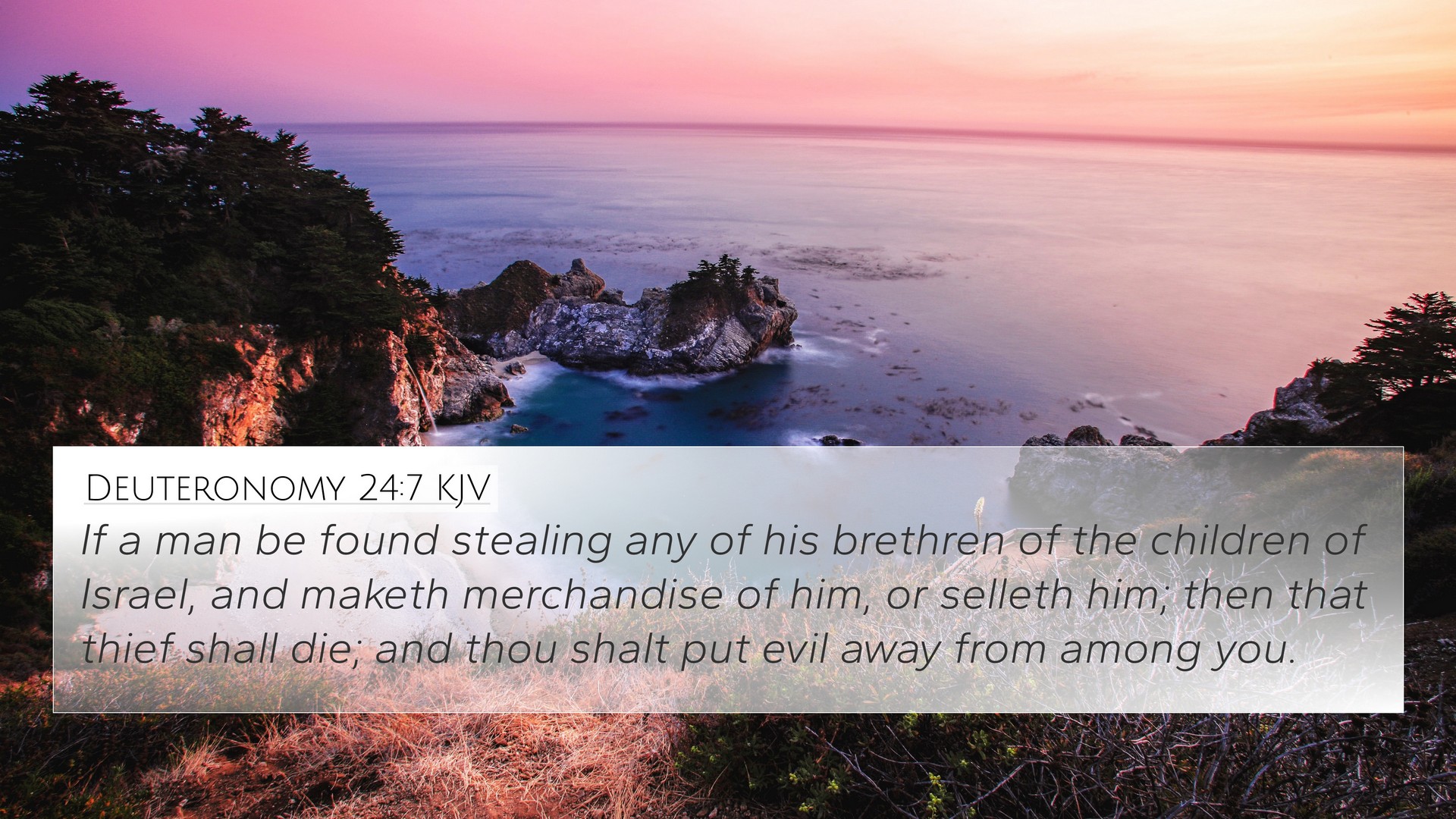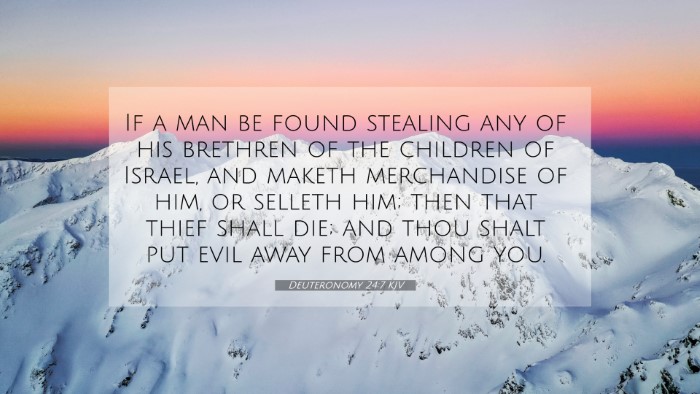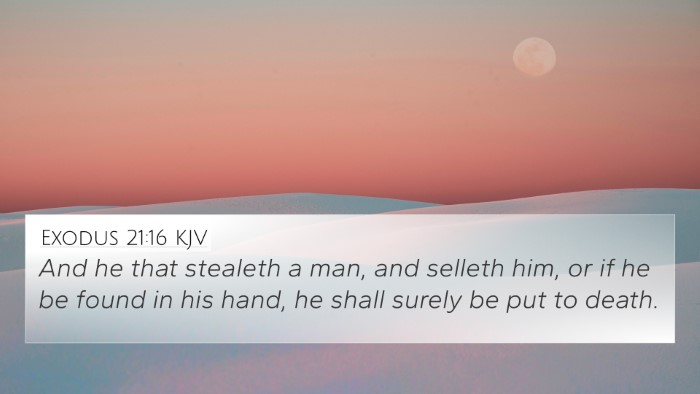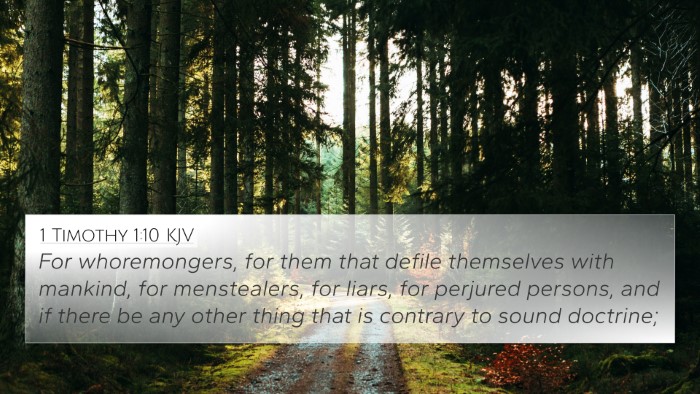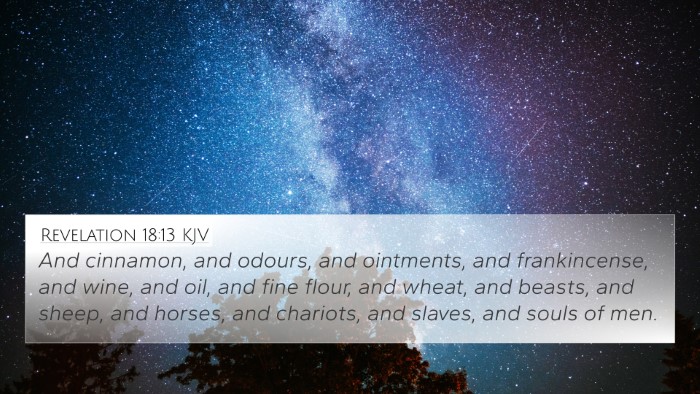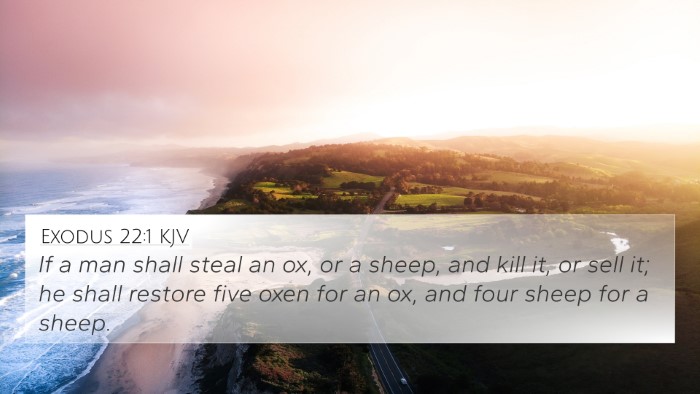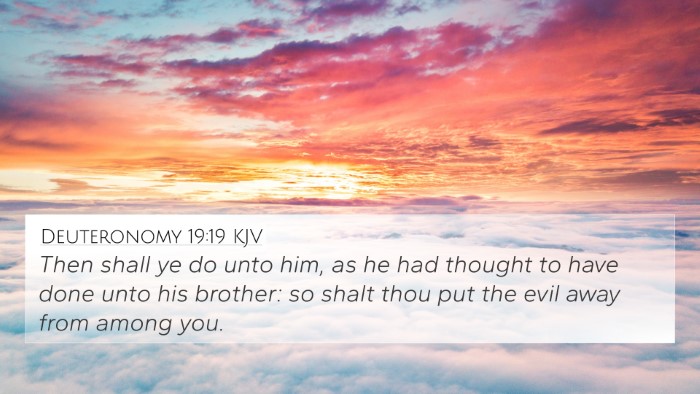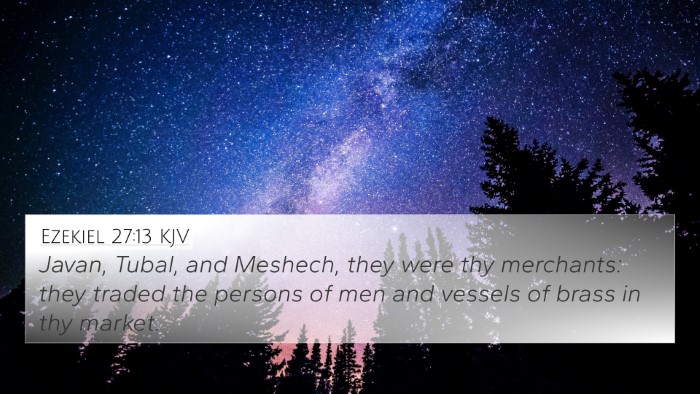Understanding Deuteronomy 24:7
Deuteronomy 24:7 states: "If a man is found stealing any of his brethren of the children of Israel, and maketh merchandise of him, or selleth him; then that thief shall die; and thou shalt put evil away from among you."
Meaning and Interpretation
The verse from Deuteronomy 24:7 addresses the serious offense of stealing a fellow Israelite, reflecting the grave consequences of such actions. This commandment underscores the sanctity of freedom and the severe penalties for the exploitation of one’s own people.
Key Insights from Public Domain Commentaries
-
Matthew Henry:
Henry emphasizes the moral weight of this commandment, highlighting that it was a direct affront not only to the individual wronged but to the community as a whole. The severity of the punishment—death—reflects how seriously God views such violations against the community.
-
Albert Barnes:
Barnes points out that this law was intended to maintain social order and righteousness among the Israelites. He indicates that both theft of a person and the act of selling a person into slavery was a capital offense, showing how deeply rooted in justice this commandment is.
-
Adam Clarke:
Clarke adds a historical perspective, noting that this statute served to prevent the degradation of society into a state of lawlessness and moral decay. His commentary explains that the Israelite community was to uphold moral laws to ensure their identity and relationship with God.
Related Bible Cross-References
To fully understand the implications of Deuteronomy 24:7, it can be beneficial to consider several cross-references in the Bible:
- Exodus 21:16: Addresses kidnapping and confirms that the offender must face severe consequences.
- Leviticus 25:39-43: Discusses the treatment of hired workers and relatives in bondage, emphasizing humane treatment.
- 1 Timothy 1:10: Lists slave traders among those who violate the law of God, showing continuity of morality from Old to New Testament.
- Matthew 18:25: Touches upon the concept of slavery and debt forgiveness in the context of justice.
- Galatians 5:1: Underlines the importance of freedom in Christ, elaborating on moral liberty and worth.
- Deuteronomy 5:21: Addresses coveting in the context of the Ten Commandments, linking to the moral fabric of society.
- Proverbs 22:22-23: Speaks to the protection of the poor, warning against exploitation in society.
Thematic Connections
This verse highlights several broad biblical themes, including:
- Justice: The requirement of severe penalties for serious offenses reflects God's justice in maintaining order.
- Human Dignity: The underlying principle is the acknowledgment of the dignity of each person, particularly those in vulnerable positions.
- Community Responsibility: The communal aspect of punishment illustrates that society bears a collective responsibility to uphold moral standards.
How to Use Cross-References for Deeper Understanding
Utilizing cross-references can help readers grasp complex biblical themes and understand how different scriptures relate to each other, providing a comprehensive study method:
- Bible Concordance: A valuable tool for finding scripture connections.
- Cross-reference Bible study: Engaging with multiple passages strengthens comprehension.
- Identifying connections: Linking Old and New Testament verses can reveal God's consistent message throughout the Bible.
Conclusion
Deuteronomy 24:7 serves as a powerful reminder of the importance of justice, human dignity, and societal responsibility. By exploring this verse in relation to others, readers can deepen their understanding of biblical principles and their applications in today’s world.
